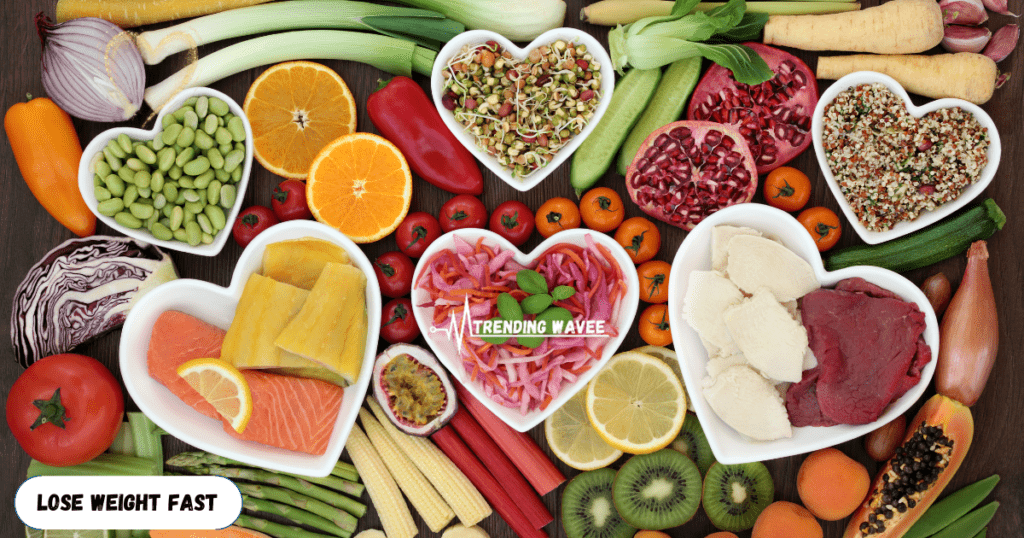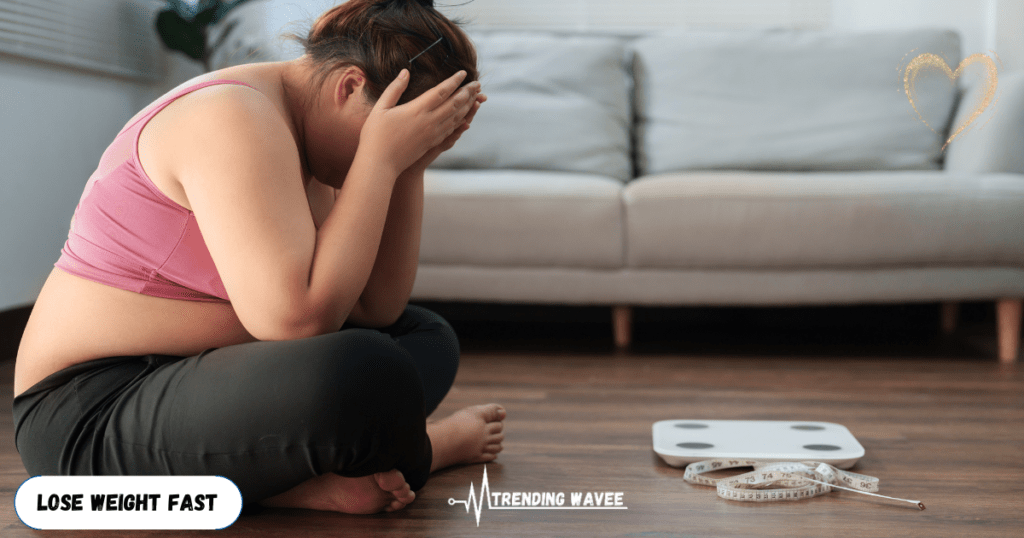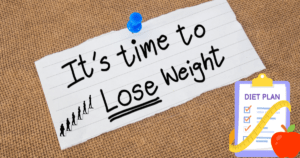How to Lose Weight Effectively
Many people think that losing weight is all about strict diets and grueling exercise routines. But guess what? Losing weight doesn’t have to be that way. You don’t need to starve yourself or spend hours at the gym to see results. In fact, how to lose weight effectively is about making small, sustainable changes that you can stick with long-term.

We’ll break down the basics of how to lose weight and expose some common misconceptions. Then, we’ll dive into proven ways to shed those extra pounds. So, if you’re ready to learn how to lose weight without all the hassle, keep reading!
What is Effective Weight Loss?
Effective weight loss is simply the process of reducing your body weight in a healthy and sustainable way. It usually involves losing fat but can also include losing water weight and sometimes muscle mass.

When you consume fewer calories than your body needs, it starts burning stored fat for energy, leading to weight loss. This is why understanding how to lose weight effectively is crucial.
But remember, it’s not just about the numbers on the scale. Losing weight effectively should also mean improving your overall health and well-being. It’s about feeling better, having more energy, and reducing the risk of health issues like heart disease and diabetes.
The Science Behind Losing Weight Effectively
Understanding the science of how to lose weight effectively can make the whole process less daunting. At its core, weight loss is about energy balance.
When you eat, you take in energy (calories), and when you move, you burn energy. If you burn more calories than you consume, you’ll lose weight effectively.
Metabolism plays a big role here. It’s the process by which your body converts what you eat and drink into energy.
Even when you’re at rest, your body needs energy for basic functions like breathing and circulating blood. The number of calories your body uses to carry out these basic functions is known as your basal metabolic rate (BMR).
To lose weight effectively, you can either reduce your calorie intake or increase your physical activity. Ideally, you’ll do a bit of both. This way, you create a calorie deficit without feeling deprived or exhausted.
Proven Ways to Lose Weight Effectively
Creating a Calorie Deficit
Creating a calorie deficit is essential for losing weight effectively. This means consuming fewer calories than your body needs to maintain its current weight. Here are some tips to help you manage your calorie intake:
- Track Your Calories: Use a food diary or an app to keep track of what you eat and drink. This can help you stay mindful of your intake.
- Eat Smaller Portions: Try eating smaller portions to reduce your calorie intake without feeling deprived.
- Choose Low-Calorie Foods: Opt for foods that are low in calories but high in volume, like fruits, vegetables, and lean proteins.
By making these small adjustments, you can create a calorie deficit that leads to effective weight loss.
Best Foods to Eat for Effective Weight Loss
Choosing the right foods can make a big difference in how to lose weight effectively. Here are some of the best foods to include in your diet:
- Leafy Greens: Spinach, kale, and other leafy greens are low in calories but high in fiber and nutrients.
- Lean Proteins: Chicken, turkey, fish, and tofu can help you feel full and satisfied.
- Whole Grains: Brown rice, quinoa, and oats provide energy and keep you full longer.
- Fruits and Vegetables: These are low in calories and packed with vitamins and minerals.
- Healthy Fats: Avocados, nuts, and olive oil can help you stay satisfied.
Incorporating these foods into your meals can help you lose weight effectively in a healthy and sustainable way.
Effective Meal Plans for Weight Loss
Having a meal plan can simplify your weight loss journey. Here’s a sample meal plan to get you started:
- Breakfast: Oatmeal with berries and a sprinkle of nuts. It’s nutritious and keeps you full until lunch.
- Lunch: Grilled chicken salad with a variety of vegetables and a light vinaigrette. It’s filling and packed with nutrients.
- Dinner: Baked salmon with quinoa and steamed broccoli. It’s a balanced meal that provides protein, healthy fats, and fiber.
- Snacks: Fresh fruit, Greek yogurt, or a handful of almonds make great snacks that are low in calories but high in nutrients.
This meal plan is balanced, nutritious, and designed to keep you full and energized throughout the day.
Natural Ways to Lose Weight Effectively
Looking for natural and sustainable weight loss methods? Here are some tips on how to lose weight effectively:

- Drink Plenty of Water: Staying hydrated can help you feel full and reduce hunger.
- Get Enough Sleep: Lack of sleep can lead to weight gain. Aim for 7-8 hours of quality sleep each night.
- Manage Stress: High stress levels can lead to overeating. Try relaxation techniques like yoga or meditation.
These natural methods can complement your weight loss efforts and help you achieve your goals more effectively.
Lose Weight Effectively Without Dieting
If strict diets aren’t your thing, don’t worry. You can still lose weight effectively by making simple changes to your eating habits:
- Mindful Eating: Pay attention to what and how much you’re eating. Enjoy your meals without distractions.
- Listen to Your Body: Eat when you’re hungry and stop when you’re full. Don’t eat out of boredom or stress.
- Make Healthier Choices: Opt for whole, unprocessed foods over junk food. Small changes can lead to big results.
By making these adjustments, you can lose weight effectively in a way that feels natural and sustainable.
Exercise and Physical Activity
A common misconception is that you need to do intense workouts every day to lose weight. In reality, consistency is more important than intensity. Here are some effective exercise routines:
Cardio Exercises
Cardio is great for burning calories and improving heart health. Running, cycling, swimming, and brisk walking are excellent options. Aim for at least 150 minutes of moderate cardio each week.
Strength Training
Strength training helps build muscle, which boosts your metabolism. Incorporate exercises like weight lifting, bodyweight exercises, or resistance band workouts. Aim for at least two sessions per week.
High-Intensity Interval Training (HIIT)
HIIT involves short bursts of intense exercise followed by rest periods. It’s efficient and effective for burning fat. Try alternating between sprinting and walking or doing circuit training with different exercises.
Lifestyle Changes for Sustainable Weight Loss
Healthy Eating Habits
Contrary to popular belief, you don’t have to overhaul your entire diet overnight to see results. Sustainable weight loss is about making gradual changes to your eating habits that you can maintain in the long run.
Here are some tips to help you develop healthy eating habits:
Mindful Eating
Mindful eating is all about paying attention to your food and eating without distractions. This means putting away your phone, turning off the TV, and truly savoring each bite.
When you eat mindfully, you’re more likely to enjoy your food and recognize when you’re full, which can prevent overeating.
Balanced Meals
Ensure your meals are balanced with a good mix of protein, carbohydrates, and fats. Protein helps build muscle and keeps you full, carbs provide energy, and fats support various bodily functions.
A typical balanced meal could be grilled chicken (protein), quinoa (carb), and avocado (fat).
Portion Control
Portion control is crucial for managing calorie intake without feeling deprived. Use smaller plates and bowls to help regulate portion sizes. You can also try pre-portioned snacks and meals to avoid overeating.
Eating Regularly
Skipping meals can lead to overeating later in the day. Aim to eat regular meals and healthy snacks to keep your metabolism active and prevent extreme hunger. For instance, having three meals and two snacks a day can help maintain steady energy levels.
Managing Stress for Weight Loss
Stress can be a major roadblock on your weight loss journey. When you’re stressed, your body releases cortisol, a hormone that can increase appetite and lead to weight gain, especially around the belly area. Here’s how to manage stress effectively:
Practice Relaxation Techniques
Incorporate relaxation techniques into your daily routine to reduce stress levels. Yoga, meditation, and deep breathing exercises are all great options. Even just a few minutes a day can make a big difference.
Stay Active
Physical activity is not only good for weight loss but also for reducing stress. Regular exercise releases endorphins, which are natural mood boosters. Find an activity you enjoy, whether it’s running, dancing, or playing a sport, and make it a regular part of your routine.
Tips from Successful Weight Losers
Here are some tips from people who have successfully lost weight
- Stay Consistent: Consistency is key. Even if you have setbacks, keep pushing forward.
- Find What Works for You: Everyone’s body is different. Experiment with different diets and workouts to find what suits you best.
- Don’t Be Too Hard on Yourself: Weight loss is a journey. It’s okay to indulge occasionally and take breaks when needed.
- Stay Active: Incorporate physical activity into your daily routine. Find activities you enjoy so it doesn’t feel like a chore.
- Get Support: Having a support system can make a big difference. Join a weight loss group, work out with a friend, or seek support from family and friends.
Conclusion
Losing weight effectively involves understanding the basics, debunking common myths, and implementing proven strategies.
By creating a calorie deficit, choosing the right foods, staying active, and managing stress, you can achieve sustainable weight loss.
Remember to stay motivated, track your progress, and make gradual lifestyle changes that you can maintain long-term.
Your weight loss journey is unique to you. Celebrate your successes, learn from your challenges, and keep pushing forward. With the right mindset and approach, you can reach your weight loss goals and enjoy a healthier, happier life.
FAQs
How quickly can I expect to see results?
Weight loss results can vary based on factors like diet, exercise, and individual metabolism. Generally, a safe and sustainable rate of weight loss is about 1-2 pounds per week.
What is the best diet for weight loss effectively ?
The best diet is one that you can stick with long-term and that provides balanced nutrition. Popular options include the Mediterranean diet, low-carb diets, and plant-based diets.
It’s important to find a diet that suits your preferences and lifestyle.
How much exercise do I need to lose weight?
Aim for at least 150 minutes of moderate aerobic activity or 75 minutes of vigorous activity each week, along with strength training exercises at least two days a week.
Are weight loss supplements safe?
Weight loss supplements can be safe when used correctly, but they are not regulated as strictly as medications. It’s important to choose high-quality products and consult with a healthcare provider before starting any new supplement.
How can I avoid regaining the weight I’ve lost?
To avoid regaining weight, focus on maintaining the healthy habits that helped you lose weight in the first place. Continue to eat a balanced diet, stay active, and manage stress. Regularly monitoring your weight and making adjustments as needed can also help.





